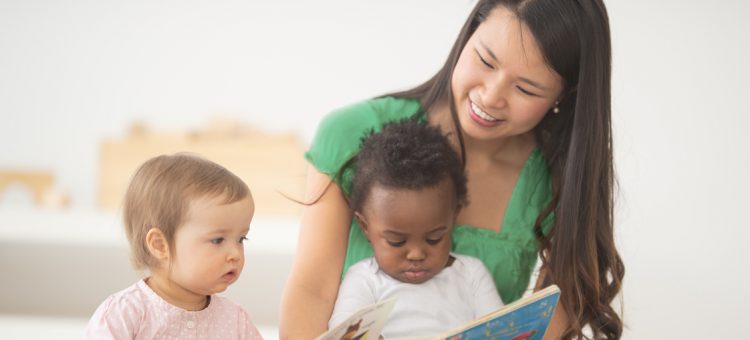Key findings:
- Brands face unmet demand for products that are tailored to the needs of consumers with disabilities
- More than two in three (69%) adults with a physical or mental impairment have difficulties completing daily tasks, with women and young people are more likely to struggle with household chores
- Most Americans believe companies show little to no consideration for consumers with physical or mental impairments when creating products
- Children with a mental or physical disability have different needs than adults with mental or physical disabilities, with children struggling more with personal care activities
More than two in three (69%) adults with a physical or mental impairment have difficulties completing daily tasks, with women and young people more likely to struggle with household chores
House chores, such as cleaning the home, doing laundry, and doing dishes are the most common challenges for individuals with physical or mental impairments.
- 49% struggle with cleaning their home
- 29% experience difficulty doing laundry
- 25% have trouble doing the dishes
Personal care also presents a challenge:
- 23% have trouble getting dressed
- 17% have trouble with hair care, including washing or brushing hair
- 13% have trouble brushing teeth, and a similar number with flossing (12%)
- 11% have trouble applying skincare products, such and cream
- 10% have trouble applying beauty products
- 7% have trouble washing their hands
In particular, more women struggle with household chores and personal grooming than men. Women struggle with cleaning the home (56%), doing the dishes (29%), getting dressed (25%), doing laundry (33%), and hair care (21%). Men report having the most trouble with cleaning the home (40%, a 16% difference from women), doing laundry (23%), getting dressed (21%), and doing the dishes (20%, a difference of 9% from women).
Access to products that are adapted for those with disabilities have an outsized impact on quality of life - those who have difficulty in finding products are twice as likely to skip a personal care activity daily, compared with those who do not have difficulty in looking for such products (22% vs 11%).
- Young adults aged 18-34 are more likely than middle aged (35-64) and older (65 and over) adults to struggle with their disability. In fact, 1 in 5 (23%) young adults with a disability say they skip a personal care activity everyday due to their physical or mental impairment (15% of 35-64 year olds, 10% of 65+ year olds).
- Seniors say they do not struggle as much. More than half (51%) of seniors with a disability say they never skip a personal care activity (compared to 29% of 35-64 year olds, and 17% of 18-34 year olds).
- A third (36%) of men and nearly half (46%) of women say they skip a personal care activity 1 to 3 days a week due to their disability.
Challenges also extend to product usage - one in five (22%) of U.S. adults with a physical or mental disability say their current products are somewhat or very difficult to use. Women are more likely than men to say it's difficult to find a product that accommodates their disability (52% of women, 43% of men). Among those who have difficulty in using their products:
- 30% say they have difficulty in opening products: Women have more trouble than men (35% vs 24%).
- 30% say they have difficulty remembering to use the product: Women have more difficulty than men (33% vs 26%).
- 18% have difficulty holding their products
- 17% have difficulty using their products properly
- 17% have difficulties using products properly
- 16% have sensitivities to products: Women have more sensitivities than men (21% vs 9%).
- 15% say products are too heavy: Women have more trouble than men (19% vs 9%).
- 11% say products are difficult to apply or use
Which of the following challenges do you face when using products?
Most Americans believe companies show little to no consideration for consumers with physical or mental impairments when creating products
Only one in four (23%) adults in the U.S. say companies prioritize the needs of consumers with physical impairments when creating their products.
- More than half (58%) of adults say companies somewhat consider the needs of consumers with disabilities, while 16% do not think companies consider such consumers at all.
- Optimism is even lower (19%) for consumers with mental impairments, with nearly half (48%) saying companies consider these consumers very little, and nearly one in three (30%) seeing no consideration at all for such consumers.
- 22% of those who have a physical or mental disability say companies do not consider the needs of those with physical impairments, compared with 14% of those who do not have a disability.
- 38% of those who have a physical or mental disability say companies do not consider the needs of those with mental impairments, compared with 29% of those who do not have a disability.
There is a generational gap in perceptions of companies’ consideration of consumers with disabilities. Younger consumers are most optimistic about companies' product offerings for those with physical and mental impairments: 33% of Gen Z believe that companies are doing a great deal for those with physical impairments, compared with 24% of Millennials, 23% of GenX, and 20% of Boomers. The trend is similar for companies accommodating those with mental impairments: 29% of Gen Z believe that companies are doing a great deal for those with mental impairments, compared with 23% of Millennials, 18% of GenX, and 13% of Boomers.
Children with a mental or physical disability have different needs than adults with mental or physical disabilities
About 1 in 10 (11%) parents report that they have at least one child with a physical or mental disability. The most common disabilities that parents reported are Anxiety (47%), ADHD/ADD (46%), Autism/Asperger’s (32%), Depression (32%), and a physical disability or impairment (19%). Other reported conditions are skin conditions (9%), visual impairments (9%), and an auditory impairment (9%).
Three in five (61%) of children with mental or physical disabilities skip a personal care activity at least once a week, with 22% skipping almost every day, and 31% skipping between 1 to 3 days a week.
- 27% have difficulty taking care of their hair (brushing, washing)
- 27% have difficulty brushing teeth, and 22% flossing
- 21% have difficulty getting dressed
- 18% have difficulty applying skincare products.
Only 28% currently use personal care products designed to accommodate their disability, and 43% of parents of children with disabilities say it is very or somewhat difficult to find products that accommodate their situation. Affordability is a top concern, with one in three (33%) parents saying that adaptive personal care items for their child or children are too expensive, rather opting for alternatives.
In an opening for brands to better tailor products for children with disabilities, usability is among the top concerns:
- 26% of parents say their children face challenges in using products properly
- 22% say their children are sensitive to their products
- 18% have difficulty applying or using products
- 17% have difficulty opening products
Read more about our polling methodology here.



